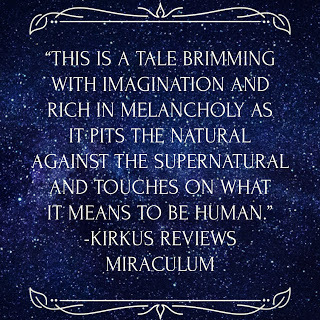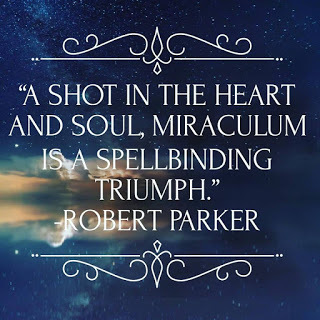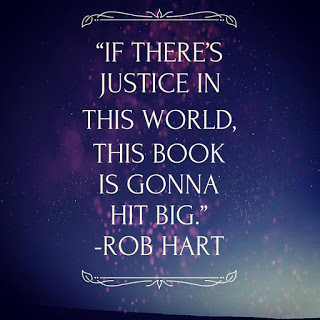Steph Post's Blog, page 9
December 15, 2018
Best of Book Bites! (A Spectacular Extravaganza Emporium)
Every year I try to do something a little bit different to celebrate the End-of-the-Book-Year in style. I ran variations of my Superfluous Spectacular Awards for a few years there and last year I showcased a Best of the Best, highlighting my favorite books over the course of this blog. This year, I'm shining some extra light on ten of my favorite Book Bites interviews conducted over the past year. I had almost 50 Book Bites author interviews up and I've been honored to give a little piece of time to authors new and established, indie and popular and just plain awesome.
That being said, here are a few of my favorites. I have no Spectacular Awards to assign, but if you're on this list, I'm sending you *imaginary* cupcakes, puppy kisses, chicken squawks and a bottle of whiskey. ;) Enjoy!

Berit Ellingsen, author of Now We Can See the Moon
"I enjoy adding animals to my stories, both as part of the setting but also as symbols or archetypes. Humans share so many of our basic reactions and behaviors with the other mammals, and to a smaller extent, reptiles and birds, so it's very interesting to have animals in stories."
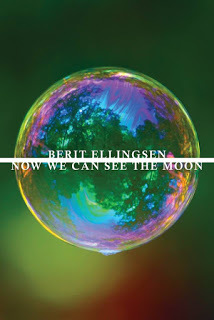
Jared Yates Sexton, author of The People Are Going to Rise Like the Waters Upon Your Shore
"I’m currently doing this political thing, which is a side-effect of my family’s focus on the political world, which was always a topic of discussion and dissection, but the fiction I write and want to write is more focused on trying to make sense of the world, which I’ve been trying to do since I knew there was a world to make sense of."
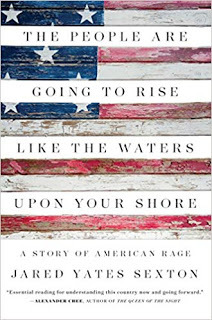
Frank Morelli, author of No Sad Songs
"On a side note, I keep tweeting at Mr. King with promises of providing my skills as the ringer on his all-author softball team. Curiously, he has yet to respond. I think it might be a collective bargaining thing. He’ll come around."
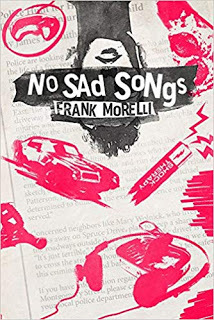
Joe Clifford, author of The One That Got Away
"I made the switch to genre, mystery, because honestly, the people were nicer."
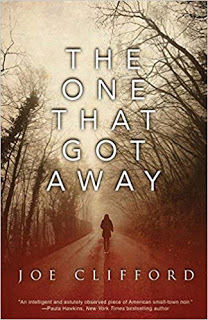
Erica Wright, author of The Blue Kingfisher
"I loved the idea of the kingfisher because it’s a stunningly beautiful bird and is quite deliberate in the way it hunts. A kingfisher will find a high perch, then swoop down for its lunch. I’m interested in the idea of haves versus have-nots, those perched highest and those nearer the earth, and how that relates to crime."
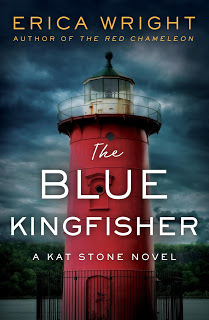
Marietta Miles, author of May
"If there is one type of person I do not trust, it is a perfect person. Everyone has a nick or divot in their armor and what that weakness is can be really important. It can tell you quite a bit about that character."
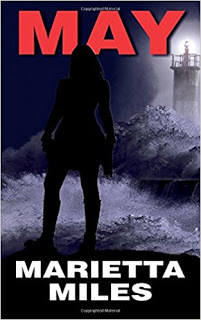
Tabitha Blankenbiller, author of Eats of Eden
"When I am very seriously questioning whether I have made the right decision to work at this, to really commit to building a writing life with whatever resources of time and energy and finances that I can scrape up, I go back to what I wrote in one of my notebooks during grad school: 'I want to be part of the conversation.'"
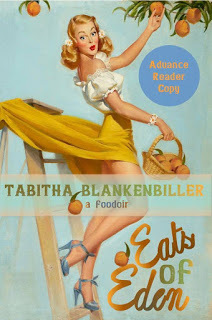
S.A. Cosby author of My Darkest Prayer
"I think I was drawn to writing about crime and mystery because I'm fascinated by the idea of studying characters who are pushed beyond the limits of what society considers acceptable."
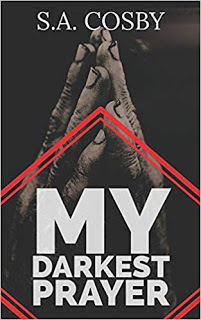
Nicole Tong, author of How to Prove a Theory
"I do simmer over how to best address something I’m contending with, and when this happens, I usually go for a run or a long hike. I voice record lines over and over until I think I have a way into music of the poem."
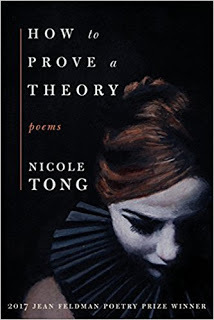
Leonard Chang, author of The Lockpicker
"However, I am often called upon to write during all times of the day or night, especially in TV, when I may actually have to write on set with a couple hundred people waiting for me to re-write a scene we’re shooting in ten minutes."
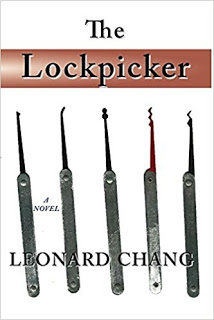
Much love to everyone who contributed to the Book Bites Series. See you next year!
That being said, here are a few of my favorites. I have no Spectacular Awards to assign, but if you're on this list, I'm sending you *imaginary* cupcakes, puppy kisses, chicken squawks and a bottle of whiskey. ;) Enjoy!

Berit Ellingsen, author of Now We Can See the Moon
"I enjoy adding animals to my stories, both as part of the setting but also as symbols or archetypes. Humans share so many of our basic reactions and behaviors with the other mammals, and to a smaller extent, reptiles and birds, so it's very interesting to have animals in stories."

Jared Yates Sexton, author of The People Are Going to Rise Like the Waters Upon Your Shore
"I’m currently doing this political thing, which is a side-effect of my family’s focus on the political world, which was always a topic of discussion and dissection, but the fiction I write and want to write is more focused on trying to make sense of the world, which I’ve been trying to do since I knew there was a world to make sense of."

Frank Morelli, author of No Sad Songs
"On a side note, I keep tweeting at Mr. King with promises of providing my skills as the ringer on his all-author softball team. Curiously, he has yet to respond. I think it might be a collective bargaining thing. He’ll come around."

Joe Clifford, author of The One That Got Away
"I made the switch to genre, mystery, because honestly, the people were nicer."

Erica Wright, author of The Blue Kingfisher
"I loved the idea of the kingfisher because it’s a stunningly beautiful bird and is quite deliberate in the way it hunts. A kingfisher will find a high perch, then swoop down for its lunch. I’m interested in the idea of haves versus have-nots, those perched highest and those nearer the earth, and how that relates to crime."

Marietta Miles, author of May
"If there is one type of person I do not trust, it is a perfect person. Everyone has a nick or divot in their armor and what that weakness is can be really important. It can tell you quite a bit about that character."

Tabitha Blankenbiller, author of Eats of Eden
"When I am very seriously questioning whether I have made the right decision to work at this, to really commit to building a writing life with whatever resources of time and energy and finances that I can scrape up, I go back to what I wrote in one of my notebooks during grad school: 'I want to be part of the conversation.'"

S.A. Cosby author of My Darkest Prayer
"I think I was drawn to writing about crime and mystery because I'm fascinated by the idea of studying characters who are pushed beyond the limits of what society considers acceptable."

Nicole Tong, author of How to Prove a Theory
"I do simmer over how to best address something I’m contending with, and when this happens, I usually go for a run or a long hike. I voice record lines over and over until I think I have a way into music of the poem."

Leonard Chang, author of The Lockpicker
"However, I am often called upon to write during all times of the day or night, especially in TV, when I may actually have to write on set with a couple hundred people waiting for me to re-write a scene we’re shooting in ten minutes."

Much love to everyone who contributed to the Book Bites Series. See you next year!
Published on December 15, 2018 03:00
December 14, 2018
Book Bites: Clea Simon, author of A Spell of Murder
Here we go, folks- the very last Book Bites. Of the year and of the run. I'll be starting up a new feature in 2019 (stay tuned) and tomorrow I'll have my Best Of list out (to replace my Spectacular Book Awards feature- always got to try something new!).
On that note, today's interview is with Clea Simon, author of A Spell of Murder . This is so far off the beaten path for me, I couldn't resist. Cats, witches and a cozy mystery at the center. A Spell of Murder is the first in its series- 'Witch Cats of Cambridge'- and it's already garnering rave reviews. Enjoy!
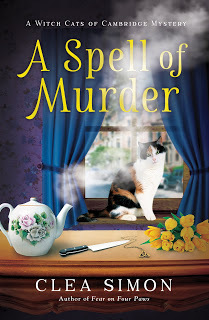 "[A] fun new cat mystery that effortlessly mixes in paranormal elements with murder and a little romance." - Criminal Element
"[A] fun new cat mystery that effortlessly mixes in paranormal elements with murder and a little romance." - Criminal Element
What drew you to the genre you write in?
The whimsy! While I often read (and now occasionally also write) dark, I have basically made my name writing mysteries with cats in them, some of which are quite dark (the books, not the cats, although …. Well, never mind). I believe this is because I grew up loving smart whimsical writers like Edward Lear, Edward Gorey, and their ilk. I think it is vital to take imagination seriously and keep that childlike spark alive. Plus, in these times, we all need some warmth – some happy endings. Plus, of course, I talk to cats, and most of my books come out of that, and how they respond to me.
How do you handle writer’s block?
I was a journalist for too long to believe in writer’s block. As long as you can physically hold a pen or sit at a keyboard, you can write something. I do go through spells of feeling dull and uncreative. The secret to getting through those is giving myself permission to write badly. I mean, really badly. Like, “she looked at the clock. Only ten minutes had passed. ‘Why is time going so slowly?’ she asked.” And then adding adverbs to up my word count. This works in a few ways. First, I think of writing as kind of like a tap. You have to let the rusty water run before you get the clear. And, second, odds are whatever you write isn’t that bad. You might be able to use some of it. Finally, it works because writing is a habit, a muscle that you use or lose. If you write everyday, your mind will expect it – and even if one day is awful, the next day you’ll want to get back at it.
Have you ever given up on a writing project?
Yes, for a few decades. My last dark mystery, World Enough, came out of a novel I was trying desperately to write in my twenties. I was a music critic at the time, with aspirations of being a novelist and documenting the punk-rock subculture that I called home but … I just could never get beyond 100 pages. For years, I kept at it and kept scrapping it. When I returned, something like 30 years later, I saw something salvageable there – at least in the first few chapters. But by then I’d both developed the writer chops to be able to pace and produce a long-form work, and, probably more to the point, I had the distance to recognize what I was really writing about – which was my own infatuation with and denial about that little subculture that I loved.
In your eyes, what does it mean to be a “successful” writer?
When readers respond to me wanting to engage with my characters, as if the characters were real people and I am simply their translator. That’s the best. That’s what I go for, in large part because that’s how I respond to books I love. If someone wants to know more about Clara’s background, for example, then I’ve done my job. If someone has a case for Becca, then I know I’m a success.
Who was your intended audience for the novel?
I’m hoping that anyone who loves a good yarn will give it a try. One problem with so-called 'genre writing' is that people who would actually enjoy the work are put off by the label. I can’t tell you how often I’ve heard, “Oh, I don’t like mysteries. I only like novels.” But a mystery is a novel, and not just in the sense that it is a work of fiction. A good mystery, like any other fiction, relies on characters that you develop feelings about, characters who go on some kind of journey – whether it is a personal quest, a voyage of self-discovery, or on the trail of a murderer. And, yes, I believe my feline characters are as fully fleshed as my human ones, and will provoke their own responses. Reading any fiction requires a leap of faith – these are all made-up stories, after all. I wish that people would look beyond the label and try my mystery – or any mystery. A Spell of Murder is intended for anyone who enjoys a good read.
On that note, today's interview is with Clea Simon, author of A Spell of Murder . This is so far off the beaten path for me, I couldn't resist. Cats, witches and a cozy mystery at the center. A Spell of Murder is the first in its series- 'Witch Cats of Cambridge'- and it's already garnering rave reviews. Enjoy!
 "[A] fun new cat mystery that effortlessly mixes in paranormal elements with murder and a little romance." - Criminal Element
"[A] fun new cat mystery that effortlessly mixes in paranormal elements with murder and a little romance." - Criminal ElementWhat drew you to the genre you write in?
The whimsy! While I often read (and now occasionally also write) dark, I have basically made my name writing mysteries with cats in them, some of which are quite dark (the books, not the cats, although …. Well, never mind). I believe this is because I grew up loving smart whimsical writers like Edward Lear, Edward Gorey, and their ilk. I think it is vital to take imagination seriously and keep that childlike spark alive. Plus, in these times, we all need some warmth – some happy endings. Plus, of course, I talk to cats, and most of my books come out of that, and how they respond to me.
How do you handle writer’s block?
I was a journalist for too long to believe in writer’s block. As long as you can physically hold a pen or sit at a keyboard, you can write something. I do go through spells of feeling dull and uncreative. The secret to getting through those is giving myself permission to write badly. I mean, really badly. Like, “she looked at the clock. Only ten minutes had passed. ‘Why is time going so slowly?’ she asked.” And then adding adverbs to up my word count. This works in a few ways. First, I think of writing as kind of like a tap. You have to let the rusty water run before you get the clear. And, second, odds are whatever you write isn’t that bad. You might be able to use some of it. Finally, it works because writing is a habit, a muscle that you use or lose. If you write everyday, your mind will expect it – and even if one day is awful, the next day you’ll want to get back at it.
Have you ever given up on a writing project?
Yes, for a few decades. My last dark mystery, World Enough, came out of a novel I was trying desperately to write in my twenties. I was a music critic at the time, with aspirations of being a novelist and documenting the punk-rock subculture that I called home but … I just could never get beyond 100 pages. For years, I kept at it and kept scrapping it. When I returned, something like 30 years later, I saw something salvageable there – at least in the first few chapters. But by then I’d both developed the writer chops to be able to pace and produce a long-form work, and, probably more to the point, I had the distance to recognize what I was really writing about – which was my own infatuation with and denial about that little subculture that I loved.
In your eyes, what does it mean to be a “successful” writer?
When readers respond to me wanting to engage with my characters, as if the characters were real people and I am simply their translator. That’s the best. That’s what I go for, in large part because that’s how I respond to books I love. If someone wants to know more about Clara’s background, for example, then I’ve done my job. If someone has a case for Becca, then I know I’m a success.
Who was your intended audience for the novel?
I’m hoping that anyone who loves a good yarn will give it a try. One problem with so-called 'genre writing' is that people who would actually enjoy the work are put off by the label. I can’t tell you how often I’ve heard, “Oh, I don’t like mysteries. I only like novels.” But a mystery is a novel, and not just in the sense that it is a work of fiction. A good mystery, like any other fiction, relies on characters that you develop feelings about, characters who go on some kind of journey – whether it is a personal quest, a voyage of self-discovery, or on the trail of a murderer. And, yes, I believe my feline characters are as fully fleshed as my human ones, and will provoke their own responses. Reading any fiction requires a leap of faith – these are all made-up stories, after all. I wish that people would look beyond the label and try my mystery – or any mystery. A Spell of Murder is intended for anyone who enjoys a good read.
Published on December 14, 2018 08:16
December 7, 2018
Book Bites: S.A. Cosby, author of My Darkest Prayer
It's the next-to-the-last Book Bites post of the year (and I'll be moving on to a different author feature next year). It's a good one, though,- an interview with S.A. Cosby, author of
My Darkest Prayer
. Cosby's crime novel- on shelves January 1st- has been getting a ton of buzz lately and with good reason. With everything from funeral homes to dangerous preachers to crooked cops, Cosby's debut is set to make a mark on 2019 and the crime fiction world....
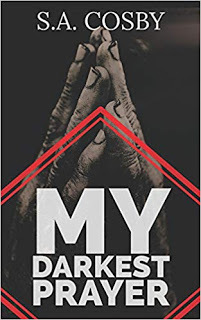 "A compelling character, a tangled mystery and crisp writing make this southern-fried investigation a hit. Rarely have I read a debut so self-assured. On nearly every page was a line I wish I’d written. S.A. Cosby has arrived fully formed." —Eric Beetner
"A compelling character, a tangled mystery and crisp writing make this southern-fried investigation a hit. Rarely have I read a debut so self-assured. On nearly every page was a line I wish I’d written. S.A. Cosby has arrived fully formed." —Eric Beetner
What drew you to the genre you write in?
I think I was drawn to writing about crime and mystery because I'm fascinated by the idea of studying characters who are pushed beyond the limits of what society considers acceptable. The idea of pressure both external and internal and its effects is extremely interesting to me and the crime and mystery genres allow me to examine these themes.
Were there any parts of your novel that were edited out, but which you miss terribly?
Yes, there were some chapters that delved into the relationship between my main character Nathan Waymaker and his friend Skunk. How they met, how their relationship developed . I know why it was cut but it had some really great passages in my opinion.
Have you ever given up on a writing project?
I never truly give up on any project. I tend to step away from projects to let them marinate and then come back to them later. I like to say I have multiple works in progress over several decades.
How important is the setting to your novel?
Setting is incredibly important to my writing. I grew up in rural Virginia and I love the area. There are a multitude of beautiful, grotesque and mysterious stories in the South that haven't always been told. I'd like to think I'm telling a few of them.
How do you handle writer's block?
I go on Pinterest and look at pictures of cats. I'm kidding, I usually talk to other writers. I workout. Lifting weight seems to unravel the knots in my subconscious.
 "A compelling character, a tangled mystery and crisp writing make this southern-fried investigation a hit. Rarely have I read a debut so self-assured. On nearly every page was a line I wish I’d written. S.A. Cosby has arrived fully formed." —Eric Beetner
"A compelling character, a tangled mystery and crisp writing make this southern-fried investigation a hit. Rarely have I read a debut so self-assured. On nearly every page was a line I wish I’d written. S.A. Cosby has arrived fully formed." —Eric BeetnerWhat drew you to the genre you write in?
I think I was drawn to writing about crime and mystery because I'm fascinated by the idea of studying characters who are pushed beyond the limits of what society considers acceptable. The idea of pressure both external and internal and its effects is extremely interesting to me and the crime and mystery genres allow me to examine these themes.
Were there any parts of your novel that were edited out, but which you miss terribly?
Yes, there were some chapters that delved into the relationship between my main character Nathan Waymaker and his friend Skunk. How they met, how their relationship developed . I know why it was cut but it had some really great passages in my opinion.
Have you ever given up on a writing project?
I never truly give up on any project. I tend to step away from projects to let them marinate and then come back to them later. I like to say I have multiple works in progress over several decades.
How important is the setting to your novel?
Setting is incredibly important to my writing. I grew up in rural Virginia and I love the area. There are a multitude of beautiful, grotesque and mysterious stories in the South that haven't always been told. I'd like to think I'm telling a few of them.
How do you handle writer's block?
I go on Pinterest and look at pictures of cats. I'm kidding, I usually talk to other writers. I workout. Lifting weight seems to unravel the knots in my subconscious.
Published on December 07, 2018 09:02
November 29, 2018
Kirkus Reviews on Miraculum
Published on November 29, 2018 10:56
November 27, 2018
Patricia Austin Becker on Miraculum
Published on November 27, 2018 09:03
November 26, 2018
Miraculum on Jean Book Nerd Podcast
Thrilled to be able to share my first podcast interview focusing on my upcoming novel
Miraculum
. And it's over at Jean Book Nerd's- a treasure trove of interviews, podcasts and articles on everything from YA fantasy novels to Battlefront to Her Universe. It's a must-stop for any sci-fi and/or fantasy fan and I'm honored to be now be a part of it.


Published on November 26, 2018 07:48
November 24, 2018
Robert Parker, on Miraculum
Published on November 24, 2018 07:31
November 23, 2018
Book Bites: Hank Early, author of In the Valley of the Devil
Happy (late) Thanksgiving! Today, I'm bringing you an interview with an intriguing author- Hank Early, who is nailing down a somewhat new corner of the crime and mystery fiction scene: the Southern Gothic Private Investigator. Taking place in the North Georgia mountains, with all the creepiness of haunted cornfields and wild forests,
In the Valley of the Devil
is Early's second novel featuring Earl Marcus a P.I. running away from his fundamentalist religious background and right straight towards a killer.
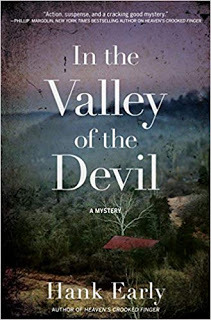 "Hank Early pens rural noir with the best of them, and his protagonist, Earl Marcus, is a worthy addition to the canon of hard-as-bark detectives."―Laird Barron
"Hank Early pens rural noir with the best of them, and his protagonist, Earl Marcus, is a worthy addition to the canon of hard-as-bark detectives."―Laird Barron
If you weren’t writing, what would you be doing with all of your free time?
Ha! It’s a good thing I write because there is no telling what trouble I’d get up to if I had all of that time. Probably some combination of drinking too much, gaming, and becoming even more obsessed/ invested in my long running fantasy basketball team. I'd definitely enjoy finally having time to keep up with the latest and greatest books. I usually run a couple of years behind on the “hot” books. But truthfully, I’d eventually find something else to pour myself into because I’m not the kind of person who does very well without an obsession.
Were they any parts of your novel that were edited out, but which you miss terribly?
Actually, no. This is probably something I should remember, I suppose. Because I can certainly remember being upset about being asked to cut sections of novels. Offended even. Shows what I know because now I can’t even remember what I cut that had me so upset. The lesson here, I suppose, is to trust your editor. They know what they’re doing even when it pisses you off, especially when it pisses you off.
Have you ever given up on a writing project?
More times than I can count. But I never throw anything away, and almost all the stuff I’ve given up on gets bastardized into something new down the road. I’m always retrofitting old chunks of stories and novels into completely new frameworks. In fact, in the second Earl Marcus book, In the Valley of the Devil, I resurrected some setting and mood descriptions from a horror novel I’d abandoned a few years earlier, which probably explains why so many reviewers have been surprised (pleasantly, for the most part) that the novel has such a horror feel to it.
Did the novel have any alternate titles?
My latest novel, In the Valley of the Devil was previously called Skull Keep. I think in the end, my publisher found that a little too horror for what is ostensibly a crime novel, so I relented. But I did like that title. I think sometimes writers aren’t always the best judge of their titles. I’ve had plenty that I thought were amazing but when I shared them with people, they didn’t seem too impressed. So, unless I really, really feel strongly about a title, I’ll usually defer to the editor and come up with something different if they don’t think it fits.
How important is the setting in your novel?
Setting is pretty much everything to me. I never understand my books until I have a good grasp of the setting which in turn helps me capture the mood and tone of the writing and characters. I’d say it’s the single most important aspect of my novels. But then again, writers aren’t particularly good judges of their own work, so an astute reader might disagree.
 "Hank Early pens rural noir with the best of them, and his protagonist, Earl Marcus, is a worthy addition to the canon of hard-as-bark detectives."―Laird Barron
"Hank Early pens rural noir with the best of them, and his protagonist, Earl Marcus, is a worthy addition to the canon of hard-as-bark detectives."―Laird BarronIf you weren’t writing, what would you be doing with all of your free time?
Ha! It’s a good thing I write because there is no telling what trouble I’d get up to if I had all of that time. Probably some combination of drinking too much, gaming, and becoming even more obsessed/ invested in my long running fantasy basketball team. I'd definitely enjoy finally having time to keep up with the latest and greatest books. I usually run a couple of years behind on the “hot” books. But truthfully, I’d eventually find something else to pour myself into because I’m not the kind of person who does very well without an obsession.
Were they any parts of your novel that were edited out, but which you miss terribly?
Actually, no. This is probably something I should remember, I suppose. Because I can certainly remember being upset about being asked to cut sections of novels. Offended even. Shows what I know because now I can’t even remember what I cut that had me so upset. The lesson here, I suppose, is to trust your editor. They know what they’re doing even when it pisses you off, especially when it pisses you off.
Have you ever given up on a writing project?
More times than I can count. But I never throw anything away, and almost all the stuff I’ve given up on gets bastardized into something new down the road. I’m always retrofitting old chunks of stories and novels into completely new frameworks. In fact, in the second Earl Marcus book, In the Valley of the Devil, I resurrected some setting and mood descriptions from a horror novel I’d abandoned a few years earlier, which probably explains why so many reviewers have been surprised (pleasantly, for the most part) that the novel has such a horror feel to it.
Did the novel have any alternate titles?
My latest novel, In the Valley of the Devil was previously called Skull Keep. I think in the end, my publisher found that a little too horror for what is ostensibly a crime novel, so I relented. But I did like that title. I think sometimes writers aren’t always the best judge of their titles. I’ve had plenty that I thought were amazing but when I shared them with people, they didn’t seem too impressed. So, unless I really, really feel strongly about a title, I’ll usually defer to the editor and come up with something different if they don’t think it fits.
How important is the setting in your novel?
Setting is pretty much everything to me. I never understand my books until I have a good grasp of the setting which in turn helps me capture the mood and tone of the writing and characters. I’d say it’s the single most important aspect of my novels. But then again, writers aren’t particularly good judges of their own work, so an astute reader might disagree.
Published on November 23, 2018 07:18
November 21, 2018
Rob Hart on Miraculum
Published on November 21, 2018 09:01
November 20, 2018
So, Why a Carnival?
Many thanks to Jackie Minniti for hosting me over at Fabulous Florida Writers this week. In this piece, I do a little exploring as to why my new novel
Miraculum
has a traveling carnival as its setting.... Enjoy!
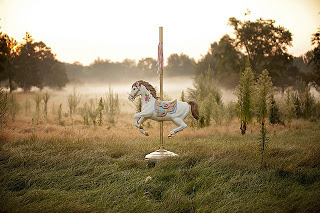

Published on November 20, 2018 08:38

